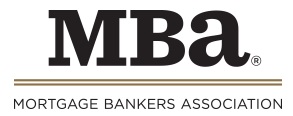WASHINGTON, D.C. – December 12, 2012 – (RealEstateRama) — Mortgage applications increased 6.2 percent from one week earlier, according to data from the Mortgage Bankers Association’s (MBA) Weekly Mortgage Applications Survey for the week ending December 7, 2012.
The Market Composite Index, a measure of mortgage loan application volume, increased 6.2 percent on a seasonally adjusted basis from one week earlier. On an unadjusted basis, the Index increased 6 percent compared with the previous week. The Refinance Index increased 8 percent from the previous week and is at its highest level since the week ending October 12, 2012. The seasonally adjusted Purchase Index increased 1 percent from one week earlier. The unadjusted Purchase Index decreased 4 percent compared with the previous week and was 9 percent higher than the same week one year ago.
“Continued uncertainty due to the lack of resolution regarding the fiscal cliff led interest rates lower last week, with mortgage rates reaching a new low in our survey,” said Mike Fratantoni, MBA’s Vice President of Research and Economics. “Refinance activity increased, with the refinance index hitting its highest level in two months, and the refinance share reaching its highest level since January 2009. Applications for purchase increased for a fifth consecutive week, and are running almost ten percent above their level at this time last year.”
The refinance share of mortgage activity increased to 84 percent of total applications from 82 percent the previous week. The adjustable-rate mortgage (ARM) share of activity remained at 3 percent of total applications. The HARP share of refinance applications increased to 29 percent from 27 percent the prior week.
The average contract interest rate for 30-year fixed-rate mortgages with conforming loan balances ($417,500 or less) decreased to 3.47 percent, the lowest rate in the history of the survey, from 3.52 percent, with points decreasing to 0.36 from 0.41 (including the origination fee) for 80 percent loan-to-value ratio (LTV) loans. The effective rate decreased from last week.
The average contract interest rate for 30-year fixed-rate mortgages with jumbo loan balances (greater than $417,500) decreased to 3.77 percent from 3.79 percent, with points increasing to 0.35 from 0.32 (including the origination fee) for 80 percent LTV loans. The effective rate decreased from last week.
The average contract interest rate for 30-year fixed-rate mortgages backed by the FHA decreased to 3.32 percent, the lowest rate in the history of the survey, from 3.34 percent, with points decreasing to 0.51 from 0.62 (including the origination fee) for 80 percent LTV loans. The effective rate decreased from last week.
The average contract interest rate for 15-year fixed-rate mortgages decreased to 2.85 percent, the lowest rate in the history of the survey, from 2.86 percent, with points decreasing to 0.26 from 0.27 (including the origination fee) for 80 percent LTV loans. The effective rate decreased from last week.
The average contract interest rate for 5/1 ARMs increased to 2.63 percent from 2.62 percent, with points decreasing to 0.34 from 0.40 (including the origination fee) for 80 percent LTV loans. The effective rate decreased from last week.
Please note that as a result of MBA offices being closed Monday, December 24, 2012 through Tuesday, January 1, 2012, the Weekly Applications Survey results will not be released on December 26 for the week ending December 21, 2012. Release of the survey will resume on Thursday, January 3, 2012 at 7:00 a.m. with results for the two weeks prior.
If you would like to purchase a subscription of MBA’s Weekly Applications Survey, please visit www.mortgagebankers.org/WeeklyApps, contact "> or click here.
The survey covers over 75 percent of all U.S. retail residential mortgage applications, and has been conducted weekly since 1990. Respondents include mortgage bankers, commercial banks and thrifts. Base period and value for all indexes is March 16, 1990=100.
###
The Mortgage Bankers Association (MBA) is the national association representing the real estate finance industry, an industry that employs more than 280,000 people in virtually every community in the country. Headquartered in Washington, D.C., the association works to ensure the continued strength of the nation’s residential and commercial real estate markets; to expand homeownership and extend access to affordable housing to all Americans. MBA promotes fair and ethical lending practices and fosters professional excellence among real estate finance employees through a wide range of educational programs and a variety of publications. Its membership of over 2,200 companies includes all elements of real estate finance: mortgage companies, mortgage brokers, commercial banks, thrifts, Wall Street conduits, life insurance companies and others in the mortgage lending field. For additional information, visit MBA’s Web site: www.mortgagebankers.org.










